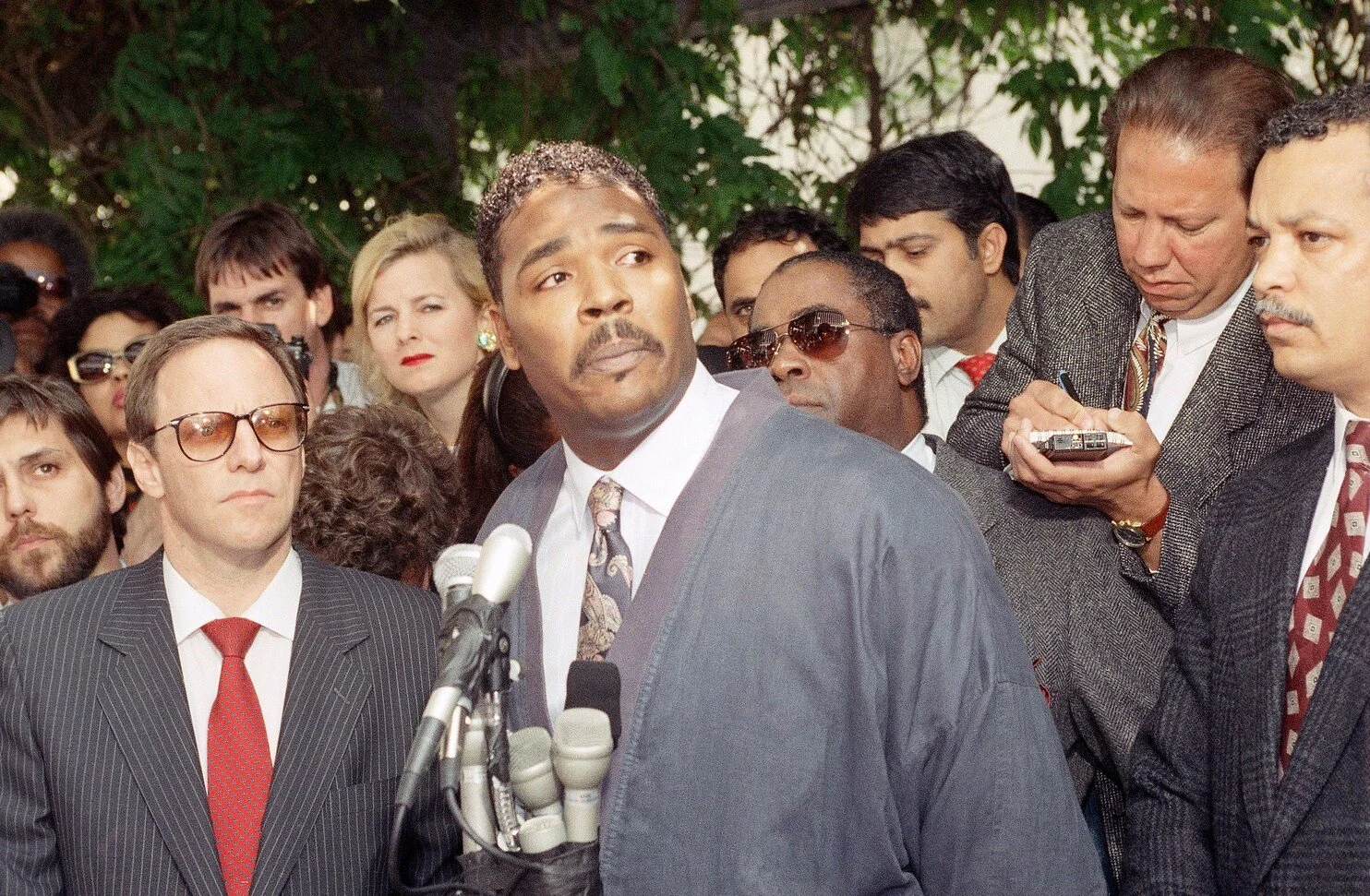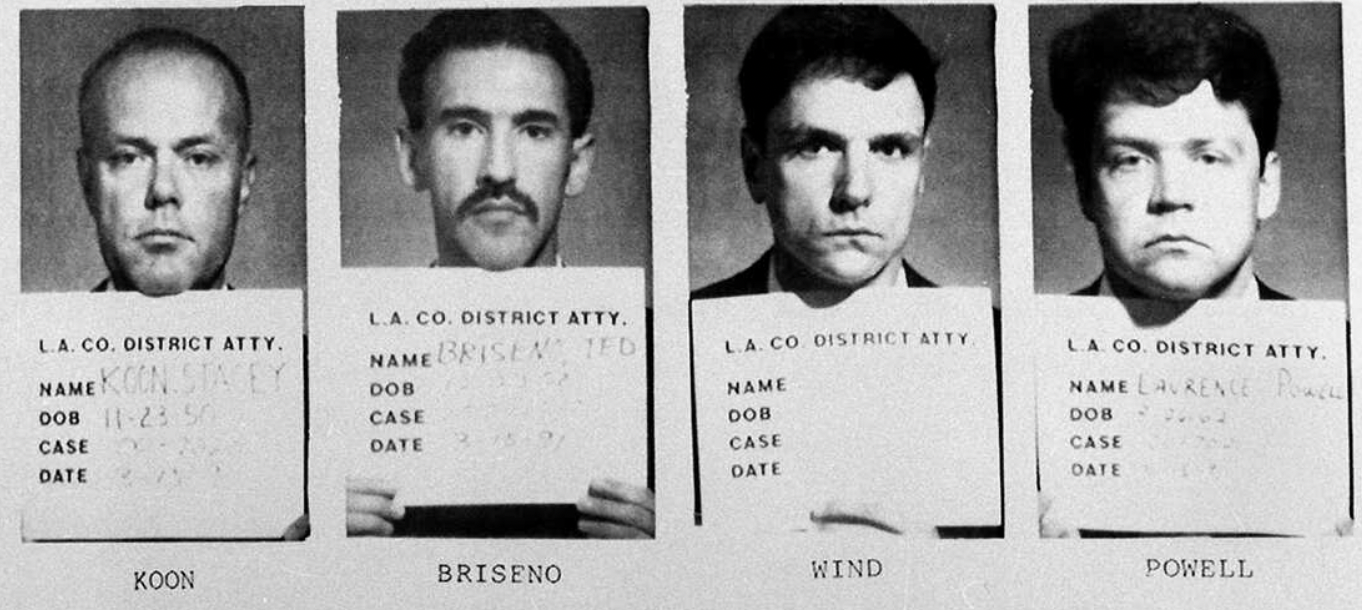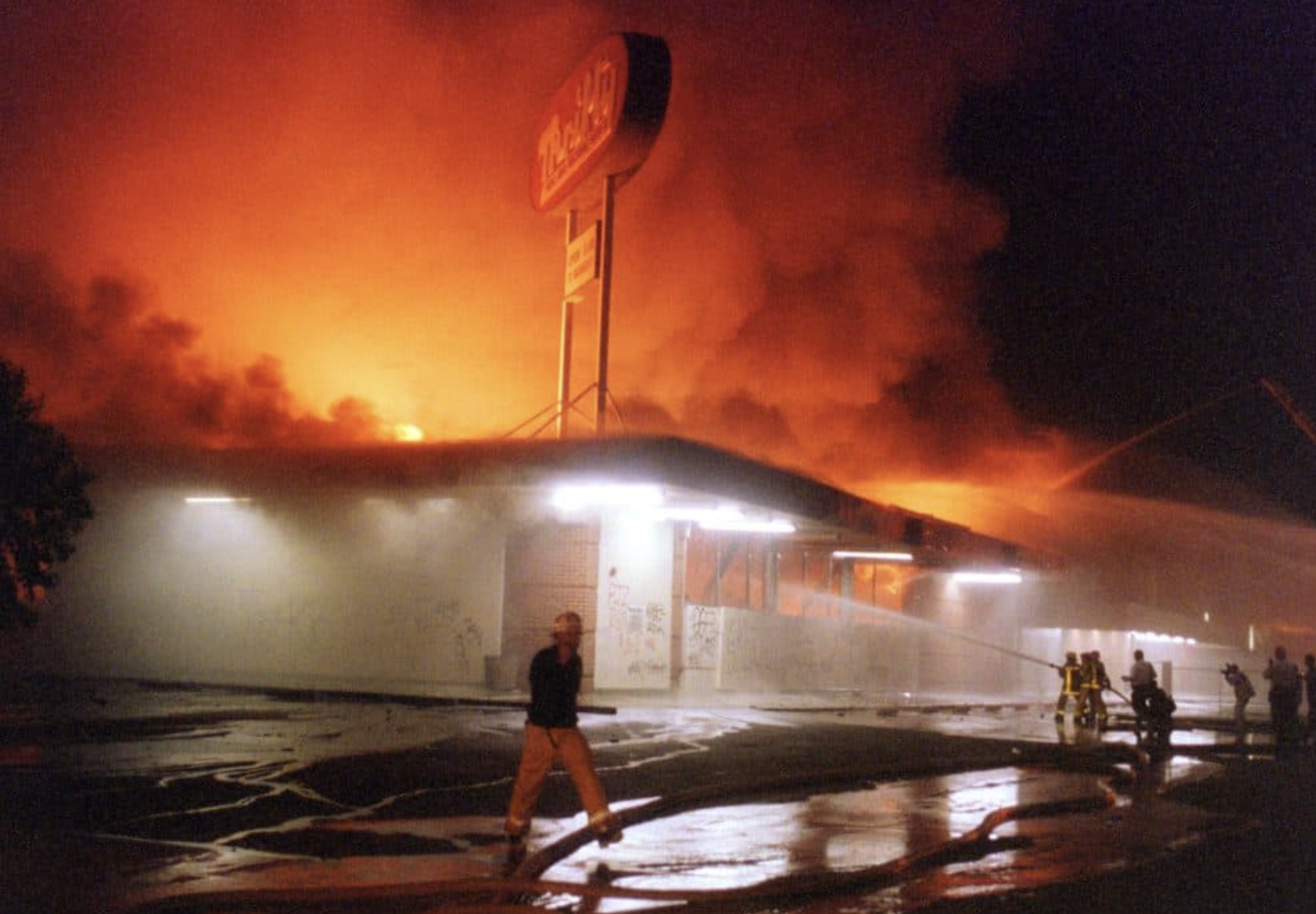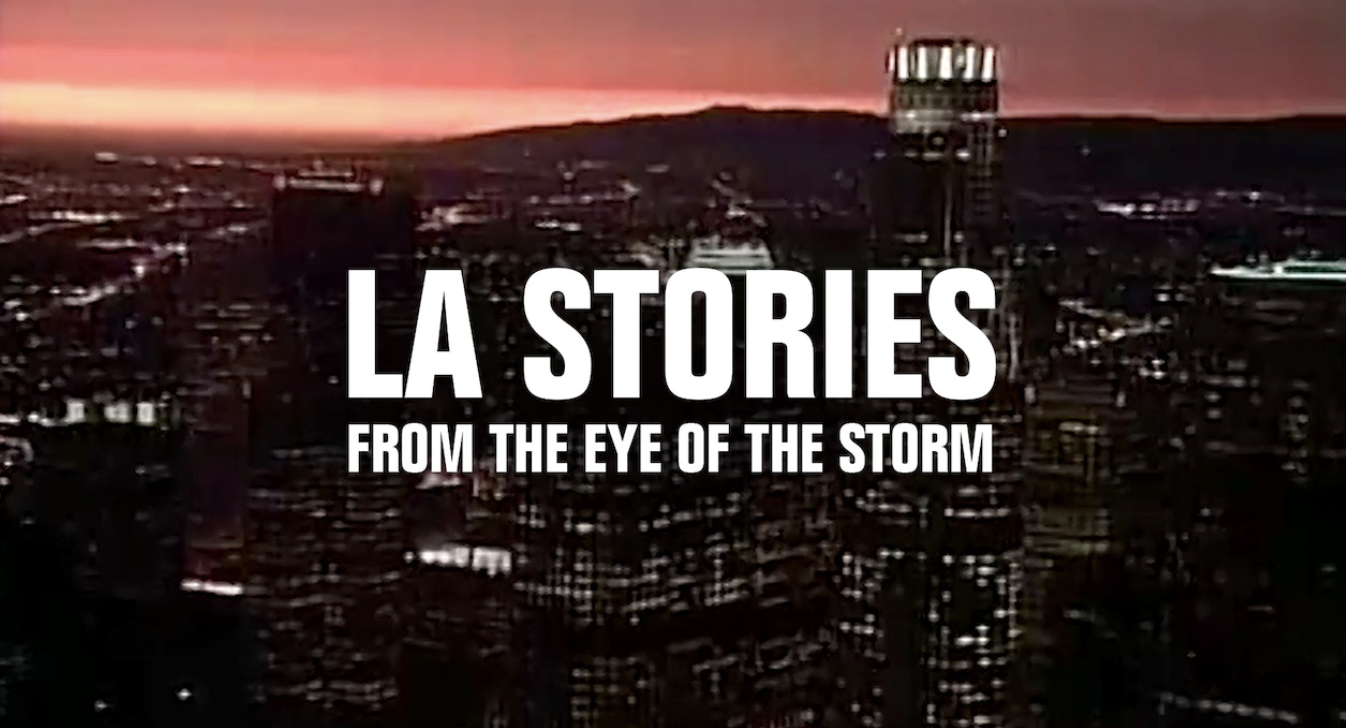Remembering Rodney King & the Impact of Citizen Journalism 30 Years Later
Thirty years ago on the afternoon of April 29, 1992, four LAPD officers who had severely beaten Black motorist Rodney King were acquitted by a non-Black jury. This verdict rocked the nation and LA was set on fire.
The videotaped assault by the four policemen caught on camera by George Holliday consisted of the policemen kicking and clubbing King 56 times for 15 minutes, leaving him with a fractured skull, broken bones and teeth, and permanent brain damage.
AP
“Everyone knew what they had seen, and the brutality was real,” said Fenton Bailey, co-founder of World of Wonder. “So when a predominantly white jury decided differently, LA erupted in riots. All this because one person had hit record on their camcorder. The video revolution had arrived. For real.”
The acquittal in the face of such video evidence birthed the LA Riots. The world witnessed Los Angeles’ outrage erupt into a six-day explosion of residents taking protests to the streets and a National Guard deployment that resulted in more than 50 deaths and as many as 10,000 arrests.
Getty Images
Bailey and co-founder Randy Barbato, gave 10 Angelinos video cameras for a year to document the aftermath.
“We were on the ground in South Central handing out video cameras to people caught up in the riots to keep video diaries of their lives for the next 12 months,” said Bailey. “Among them Charles Denny, a former Cripps’ gangleader, Ennis Beley, a young kid who lived round the corner in the back of his grandpa’s dry-cleaning store, Zoey Tur a helicopter pilot who had hovered above the scene at the flash point of the riots, and Reggie Brumfield, a guy who took his video camera and filmed the looting and mayhem as it kicked off.”
Bailey and Barbato weaved the video diaries into a two-and-a-half-hour feature for the BBC called LA Stories: From the Eye of the Storm, which can be streamed now on WOW Presents Plus.
The LA Riots would be a generational precursor to the Black Lives Matter movement over police brutality and police bias against people of color decades later. The ruthless beating of Rodney King ignited a national conversation about racial and economic disparity and police use of force that still continues today and has yet to be resolved. The video that George Holliday captured from his balcony would just be one of the first reported among a long line of police brutality videos to go viral.
Though the fight for racial justice remains, one of the takeaways we’ve learned from the past three decades is that everyday people have been at the forefront of resistance against powerful interests around the world, with citizen journalists being the unsung heroes in the fight for justice and holding the police accountable.
Rest in power, Rodney King.
For more education, resources, and ways you can demand police accountability, visit PB-Resources, a comprehensive directory on anti-racism and Black liberation, built by student and activist Alexis Williams.



